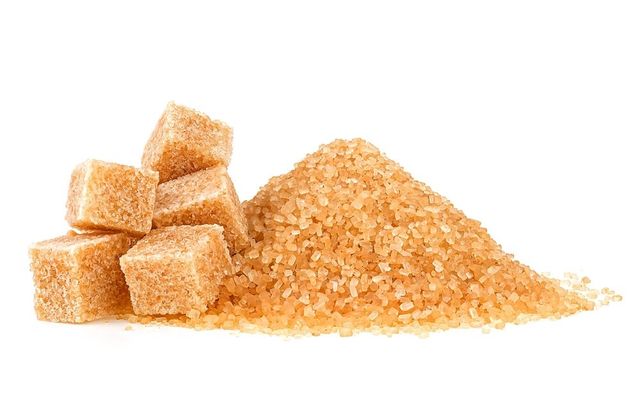The Terrific Dispute: Beetroot Sugar Vs Cane and Their Effect On Health And Wellness
The continuous debate surrounding beet sugar and cane sugar raises vital concerns concerning their particular wellness impacts and more comprehensive implications for consumer options. This discussion invites us to consider not simply the sweetness we select, however the far-ranging results of those choices on our health and wellness and the planet.
Review of Sugar Resources
Sugar, an extensively taken in sugar, largely originates from 2 major resources: sugar beets and sugar walking stick. These crops are cultivated in numerous areas around the world, each adding to the global sugar supply in distinct ways. Sugar walking cane grows in subtropical and tropical climates, with major producers including Brazil, India, and China. The plant is harvested for its stalks, which are after that refined to remove juice and crystallize sugar.
Alternatively, sugar beets are mostly expanded in temperate regions, with significant production in countries such as the USA, France, and Germany. The beets are harvested from the ground, cut, and subjected to a procedure that converts the removed juice right into granulated sugar. While both sugar resources ultimately yield sucrose, their agricultural methods, processing techniques, and geographical distributions differ noticeably.
These distinctions can affect not just the environmental effect of sugar manufacturing yet likewise the economic aspects of sugar prices and profession. Comprehending the origins of these sugar is critical for policymakers and customers alike, as it lays the structure for educated conversations regarding their health and wellness effects and sustainability.
Nutritional Comparison
When analyzing the nutritional accounts of beetroot sugar and walking cane sugar, both resources share a similar make-up as they mainly contain sucrose. Sucrose is a disaccharide, composed of sugar and fructose, and is accountable for the sweet taste associated with both sugars. The refining procedures for both beet and walking stick sugar return products that are primarily pure sucrose, with marginal traces of vitamins, minerals, or other nutrients.
In terms of calorie material, both beet and walking cane sugars provide around 4 calories per gram. Neither kind of sugar provides significant dietary advantages beyond power provision, as they lack vital vitamins or minerals. The presence of trace components, such as magnesium, calcium, and potassium, can differ slightly between the 2, mostly due to the agricultural practices and dirt problems in which they are grown.
In addition, the glycemic index worths of beetroot sugar and walking stick sugar are equivalent, suggesting comparable effects on blood sugar degrees. On the whole, from a dietary point ofview, beetroot and cane sugars are functionally comparable, adding primarily to caloric consumption without providing significant health benefits over each other.
Wellness Implications
The health and wellness implications of consuming beetroot sugar and walking stick sugar warrant careful factor to consider, specifically provided the rising prevalence of sugar-related health and wellness issues. Both sorts of sugar contribute comparable caloric values and can result in increased risks of excessive weight, type 2 diabetes mellitus, and heart diseases when eaten in unwanted. The body metabolizes both sugars right into sugar, which can create spikes in blood sugar level degrees, leading to insulin resistance in time.
While there is recurring discussion concerning the glycemic index of these sugars, research studies suggest that both can adversely influence metabolic health and wellness if consumed in large amounts. beet sugar vs cane. Additionally, the possible existence of impurities in beet sugar, such as pesticides from traditional farming practices, raises more wellness worries. On the other hand, cane sugar, particularly when minimally processed, might provide a slightly extra positive account because of its natural state
In addition, the consumption of sugarcoated, despite the resource, is connected to damaging health results, including dental concerns and fatty liver condition. As a result, small amounts is important, and people need to be conscious of their total sugar intake from all sources, eventually focusing on whole foods over added sugars for ideal health results.
Environmental Effect
Recognizing the wellness ramifications of beetroot and walking cane sugar additionally leads to an exam of their ecological influence, which can dramatically influence agricultural sustainability and eco-friendly balance. Both sugar sources have distinctive environmental footprints, formed by their cultivation practices and geographical demands.

In comparison, beet sugar is commonly expanded in temperate environments and typically includes varied plant turnings. This technique can enhance soil health and wellness and minimize reliance on chemical inputs. However, extensive beetroot farming can also cause vitamins and mineral exhaustion and parasite pressures otherwise managed sustainably.
Both sugar kinds existing obstacles and opportunities for ecological stewardship. Promoting lasting farming practices and liable sourcing can alleviate their effects, making sure that sugar manufacturing lines up with ecological preservation and lasting food safety.
Customer Preferences
Amid expanding recognition of wellness and environmental issues, customer choices for sugar kinds are progressively influenced by understandings of wellness advantages, sustainability, and moral sourcing. Beet sugar and cane sugar each present unique attributes that attract various customer demographics.
Health-conscious consumers commonly look at the dietary accounts of these sugars, seeking choices perceived as much less processed or even more natural. Walking cane sugar, often related to as the standard sugar, is occasionally favored for its viewed purity and simplicity. In comparison, beetroot sugar, which is frequently derived from genetically changed plants, faces hesitation among those worried regarding GMOs.
Sustainability is another significant variable affecting customer choices. As recognition of farming techniques grows, many consumers choose items that line up with environmentally friendly farming techniques. Cane sugar manufacturing, specifically when sourced from sustainable ranches, can appeal to eco-conscious buyers.
Moral sourcing plays an essential function as well, with customers significantly favoring items that sustain fair labor methods. Qualifications such as Fair Profession can boost the beauty of walking cane sugar on the market. Inevitably, customer preferences are shaped by a complex interaction of health and wellness, ecological, and moral considerations, driving demand for both beet and walking cane sugars in diverse markets.
Conclusion
Finally, the discussion in between beet sugar and cane sugar includes various aspects, consisting of dietary accounts, wellness ramifications, and environmental effects. beet sugar vs cane. While both sugars primarily contain sucrose and show similar calorie web content, concerns concerning pesticide usage in beet sugar and the environmental impact of walking cane sugar monoculture warrant cautious factor their website to consider. As consumers progressively prioritize sustainability and health and wellness, educated selections concerning sugar consumption come to be vital in promoting general well-being and ecological stewardship
